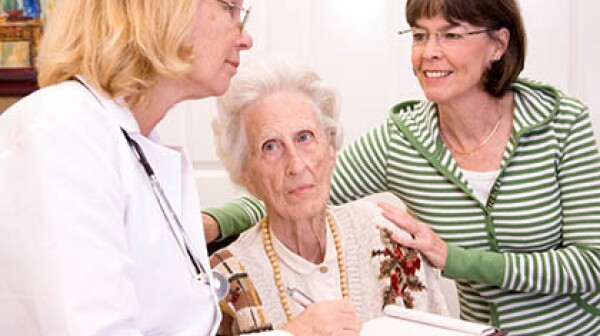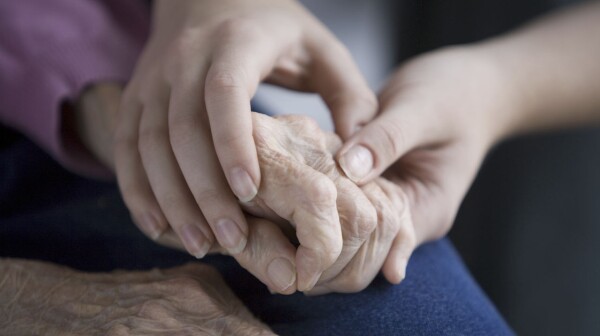AARP Eye Center
CLOSE ×
Search
Popular Searches
- right_container
- Health
- Money
- Work & Jobs
- Advocacy
- Social Security
- Medicare
- Caregiving
- Games
- Travel
- More...
- Entertainment & Style
- Family & Relationships
- Personal Tech
- Home & Living
- Auto
- Staying Sharp
- Podcasts
- Videos
Get updates on the Affordable Care Act, Medicare, health insurance, and your personal health and fitness.
A new state law backed by AARP Kansas will help ease the transition from hospital to home for patients and their caregivers, beginning next year.
Working to make Kansas the best state in which to live is something we take very seriously at AARP. And it couldn't happen without the efforts of AARP Kansas volunteers who dedicate much of their time working on advocacy issues, community service, and volunteer support.
Kansas ranks 30th when it comes to meeting the long-term care needs of older residents and people with disabilities, and AARP warns more must be done, at an accelerated pace, to meet changing demographic demands. Specific areas of concern in Kansas include support for family caregivers and more effective transitions from nursing homes to home. This, according to a new, comprehensive state-by-state Scorecard from AARP with support of the nation’s leading organizations behind quality long-term care, The Commonwealth Fund and SCAN Foundation.
Great news for our state’s more than 345,000 caregivers and the people for whom they provide care. The Kansas Legislature has passed and Governor Brownback has signed the Kansas Lay Caregivers Act, otherwise known as the Caregiver, Advise, Record and Enable or CARE Act. The new law, which goes into effect on July 1, 2018, will support caregivers when the person they are caring for is hospitalized and then returns home and is in need of care.
With Governor Brownback’s veto of KanCare (the Kansas version of Medicaid) expansion, House Bill 2044, the Kansas House now has the opportunity to put hardworking Kansans first and overturn the governor’s veto. Maren Turner, director of AARP Kansas—with more than 320,000 members age 50 and older in the Sunflower State—issued the following statement, urging the House to take action now.
On February 23, the Kansas Senate voted 38-1 in favor of the Kansas Lay Caregivers Act (SB 68 as amended), otherwise known as the CARE Act. The CARE Act would require Kansas hospitals to give each patient the opportunity to designate a caregiver when they enter the hospital so the caregiver's name can be recorded, the caregiver is informed when the patient is transferred or about to be discharged, and the caregiver is given instruction on how to take care of the patient when he or she returns home. Some patients return home needing complex medical and nursing tasks as they recuperate. The CARE Act helps ensure that the caregiver knows what to do and how to do it giving the patient a better chance of getting well and not being readmitted to the hospital.
At AARP, we believe Medicare is a deal with the American people that must not be broken.
On February 1, 2017, the Senate Public Health and Welfare Committee, chaired by Senator Vicki Schmidt, heard testimony on Senate Bill 68, the CARE Act. This proposed legislation would support the 345,000 Kansas caregivers who are providing unpaid care to a family member or loved one. The CARE Act, (Caregiver, Advise, Record, Enable Act) is another tool to reduce unnecessary hospitalizations by ensuring that caregivers are acknowledged and instructed on how to care for their loved one when he/she returns home from the hospital. It is a NO COST, commonsense solution to help formalize important discharge practices.
Medicare Annual Enrollment runs through December 7, and it’s a banner time for Medicare fraud. Beware of ads that promise medical equipment covered 100% by Medicare. Like the one that might appear in the newspaper offering a free back brace, or the TV infomercial claiming you can get anything to ease your pain with no money out of pocket. Medicare only covers durable medical equipment that is medically necessary with a doctor’s prescription. Scammers hope you don’t know this. They want your Medicare number to fraudulently bill Medicare. Plus, your Medicare number is also your Social Security number so be especially cautious about giving it out.
Outsmarting investment fraud and learning how to be a part of the AARP Fraud Watch Network and all it has to offer are just two of the topics that will be discussed at the 18th Annual Western Summit in Hays on Thursday, October 6, 2016. Other topics include activities for seniors at the Hays Recreation Center, athletics at Fort Hays State University (FHSU), fraudulent practices in acquiring antiques, a presentation on relationships with China by Dr. Ed Hammond, education professor at FHSU, and information about Hays airport services.
Search AARP Kansas
Connecting you to what matters most, like neighbors do. Find events, volunteer opportunities and more near you.
Sign Up & Stay Connected









































































